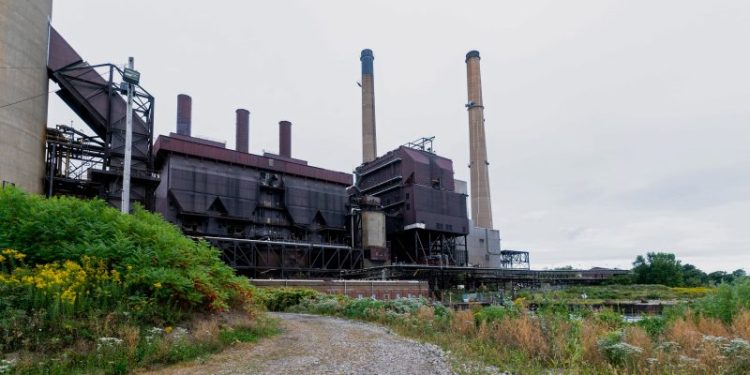Biden’s Climate Plan: Clean Energy Boost for Struggling Areas
As President Biden seeks to tackle climate change, his landmark climate law has provided much-needed relief to poorer areas across the country. The bill provides $37 billion in funding for energy efficiency projects, with the bulk of it being targeted to disadvantaged communities.
These communities tend to have higher emissions due to lack of access to clean energy sources, as well as higher exposure to air pollution due to close proximity to landfills and other hazardous sites. The targeted funding from Biden’s climate law seeks to encourage clean energy development, and provide robust strategies for reducing carbon emissions.
One of the biggest beneficiaries is the Appalachian region, where the expansion of solar and wind projects are expected to create thousands of construction jobs and help reduce the high carbon emissions in the area. The Appalachian area has long been forgotten, but this bill is helping to bring much-needed support to local communities.
The bill also provides incentives to businesses to invest in clean energy, offering tax credits and other incentives for companies to make the switch to clean power sources. These incentives include subsidized energy bills, and low-interest loans for energy efficiency retrofits.
Biden’s climate law also aims to support the sustainable growth of rural communities, such as providing incentives for farmers to convert their vehicles to electric power. This is designed to help rural communities become less polluted and reap the benefits of clean energy sources.
Of course, poorer areas are still lagging behind in terms of access to clean energy sources. The cost of switching to renewable sources can be cost prohibitive, which makes it difficult for many of these communities to make the transition. However, the Biden administration is working to make clean energy more accessible, and this new climate law is a step in the right direction.
This new climate law is a major step forward in combatting climate change and providing relief to poorer areas across the country. With its incentives for clean energy development, tax credits, low-interest loans, and other targeted support, the Biden administration is taking big steps towards a more sustainable way of life.
As President Biden seeks to tackle climate change, his landmark climate law has provided much-needed relief to poorer areas across the country. The bill provides $37 billion in funding for energy efficiency projects, with the bulk of it being targeted to disadvantaged communities.
These communities tend to have higher emissions due to lack of access to clean energy sources, as well as higher exposure to air pollution due to close proximity to landfills and other hazardous sites. The targeted funding from Biden’s climate law seeks to encourage clean energy development, and provide robust strategies for reducing carbon emissions.
One of the biggest beneficiaries is the Appalachian region, where the expansion of solar and wind projects are expected to create thousands of construction jobs and help reduce the high carbon emissions in the area. The Appalachian area has long been forgotten, but this bill is helping to bring much-needed support to local communities.
The bill also provides incentives to businesses to invest in clean energy, offering tax credits and other incentives for companies to make the switch to clean power sources. These incentives include subsidized energy bills, and low-interest loans for energy efficiency retrofits.
Biden’s climate law also aims to support the sustainable growth of rural communities, such as providing incentives for farmers to convert their vehicles to electric power. This is designed to help rural communities become less polluted and reap the benefits of clean energy sources.
Of course, poorer areas are still lagging behind in terms of access to clean energy sources. The cost of switching to renewable sources can be cost prohibitive, which makes it difficult for many of these communities to make the transition. However, the Biden administration is working to make clean energy more accessible, and this new climate law is a step in the right direction.
This new climate law is a major step forward in combatting climate change and providing relief to poorer areas across the country. With its incentives for clean energy development, tax credits, low-interest loans, and other targeted support, the Biden administration is taking big steps towards a more sustainable way of life.










